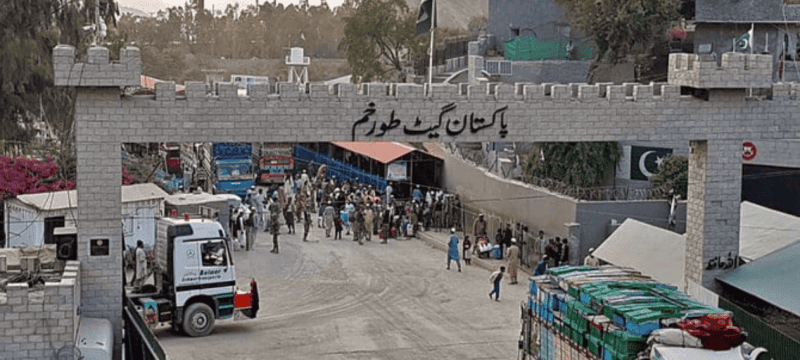The Torkham border crossing, a crucial link between Pakistan and Afghanistan, remains shuttered for the fifth consecutive day as diplomatic negotiations falter. Talks between the two nations to reopen the border have hit an impasse, raising concerns over the economic impact and highlighting the underlying tensions in the region.
Read More: Blast in Afghanistan
The Torkham border crossing, a vital trade route connecting the two nations, was abruptly closed on September 6th. This decision followed an exchange of gunfire between Pakistani and Afghan border security forces. The clashes were triggered by the construction of a new post along the border by the Afghan Taliban, a move that Pakistan views as a breach of the mutual understanding between the two countries.
According to reports, the Afghan Taliban claimed that at least two of their border guards were killed during the skirmishes, which further exacerbated tensions. Despite several rounds of negotiations, Sunday’s talks ended without a resolution, with the Pakistani side indicating that the decision to reopen the border ultimately rests with the federal government.
While there has been no official statement from the Pakistani government regarding the border closure, officials have privately emphasized Pakistan’s firm stance against any construction that challenges its territorial sovereignty.
The closure of the Torkham border has had severe repercussions. Hundreds of trucks and vehicles remain stranded on both sides of the crossing, and travelers who depend on this route have faced significant disruptions since the closure began last Wednesday. The border standoff underscores the complex and troubled relationship between Pakistan and the interim Afghan Taliban government.
In addition to the border closure, cross-border violence has further strained relations between the two countries. On the same day as the Torkham clashes, terrorists from across the border launched an attack on border posts in Pakistan’s Chitral district. This incident resulted in the deaths of at least 12 terrorists belonging to the banned Tehreek-e-Taliban Pakistan (TTP) and the loss of four Pakistani security personnel.
Subsequent clashes in the Chitral area left seven militants dead, suggesting that TTP militants may have infiltrated the region. Pakistan issued a demarche to the Afghan Charge D’affaires over the Chitral attack, urging Kabul to address the TTP threat.
Some analysts speculate that Pakistan’s decision to keep the Torkham border closed may be an attempt to exert pressure on the Afghan Taliban to take action against the TTP. This group, with a history of launching attacks on Pakistani soil, has long been a source of contention between the two nations.
The closure of the Torkham border crossing is a significant blow to landlocked Afghanistan’s economy. It serves as a vital financial lifeline, and its continued closure only exacerbates the economic challenges faced by the Taliban regime, which remains under Western sanctions.
As the standoff continues, the international community watches closely, hoping for a peaceful resolution to the border dispute and the potential alleviation of economic hardship for the Afghan people. The situation underscores the delicate balance of power and interests in the region, with the Torkham border standing at the center of this geopolitical storm.









